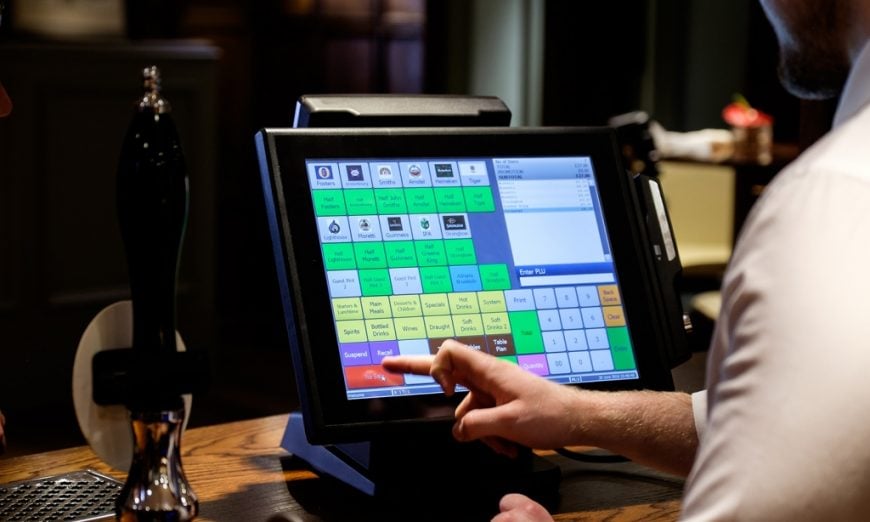In dynamic corporate landscape, maintaining an efficient and seamless sales process is crucial for achievement. This is where an integrated POS system becomes essential, revolutionizing the way organizations manage transactions, inventory, and customer engagement. We have moved beyond of using only traditional cash registers that offer limited functionality. Point of Sales Systems for Restaurants have advanced significantly, featuring innovative features that assist businesses of all sizes optimize their operations and boost customer experiences.
Comprehending what a POS system is and how it can influence your business is essential for staying competitive. Ranging from cloud-based solutions to niche applications, the alternatives available currently cater to the distinct needs of various fields, including hospitality and retail. As you delve into the benefits of integrating a high-tech POS system into your sales process, you'll realize how features like real-time data analytics, tap-and-go payments, and employee productivity enhancements can facilitate operations and encourage growth. Regardless of whether you are a entrepreneur or a manager in a larger enterprise, adopting the appropriate POS system can make all the difference in achieving operational effectiveness and improved customer satisfaction.
Understanding Point of Sale Systems as well as Their Development
Point of Sale tools, usually called POS systems, are critical instruments for businesses in managing sales activities and streamlining procedures. At their core, these systems facilitate the payment process, enabling businesses to track sales, handle inventory, and generate analytics. This functionality removes the complexities of handwritten record-keeping, providing a better and organized approach for conducting transactions. The modern POS system merges hardware and digital tools to enable transaction processing, inventory management, and client interaction, rendering it an essential tool across multiple sectors.
The evolution of POS systems has been extraordinary, evolving from old-school cash registers to sophisticated, cloud-based platforms. In the beginning, traditional registers were simple instruments that only logged sales data. As advancement progressed, digital registers emerged, providing features like fundamental reporting and inventory tracking. Today, contemporary Point of Sale systems leverage cloud computing, allowing for instant information retrieval and off-site control, which vastly boosts operational efficiency. This development has allowed companies to adapt to shifting client expectations and market conditions, transforming the way transactions are processed.
With the growth of online shopping and evolving payment options, today's companies require adaptable and powerful POS systems. The option to connect with different services, such as web shops and accounting software, is now essential. Moreover, features like mobile payments, tap payments, and advanced analytics have redefined what a POS system can perform. As businesses turn to the future, grasping the progress and features of Point of Sale systems is vital for choosing the right solution that matches their operational and consumer service aims.
Choosing the Right POS System for Your Business
Selecting the ideal POS system for any business is crucial for optimizing processes and boosting customer service. Start by assessing the specific needs based on your industry. For instance, a retail store may need strong inventory management features, while a restaurant might focus on seating arrangements and ease of payment processing. Understanding the operational requirements will assist narrow down options that truly fit the business model.
Subsequently, consider the scalability and flexibility of the POS system. As the business grows, your technology should be able to adapt to growing demands. Look for systems that provide adaptable features and integrations with other software, such as accounting and CRM solutions. This adaptability ensures that you won’t surpass the system, which could lead to budget-breaking replacements in the future.
Finally, take into account the user-friendliness and training needs of your staff. A simple interface can significantly reduce the learning curve, leading to higher productivity and fewer mistakes. It is wise to involve your team in the decision-making process, as their feedback can provide insight into what features will be especially beneficial in their daily tasks. Selecting a POS solution that aligns with both your business goals and your employees' needs will facilitate a smoother transition and enhanced operational efficiency.
Guaranteeing Security and Efficiency in POS Operations
Upholding protection in POS processes is vital for protecting confidential customer information and safeguarding business functions. Utilizing effective security protocols, such as using EMV chip technology, can significantly diminish the risk of fraudulent transactions and data compromises. Additionally, ensuring compliance with PCI regulations is necessary for any business employing a POS system. Regular security updates and staff training on optimal procedures can additionally enhance the security posture of your business.
Efficiency in POS processes can be realized by combining your POS system with other key software such as accounting and customer relationship management (CRM) platforms. This combination streamlines data flow between systems, minimizing manual data entry and minimizing errors. A state-of-the-art POS system featuring with inventory management capabilities can also streamline stock tracking, helping businesses to make prudent purchasing choices and maintain ideal inventory levels without overstocking.

Moreover, utilizing data analytics from your POS system can lead to better business decisions. By examining sales trends and customer behavior, businesses can customize their offerings to meet customer demands efficiently. Frequent maintenance of the POS system guarantees that it functions at optimal performance, minimizing downtime and ensuring the sales process proceeding without interruptions. Establishing a routine for employee training on efficient POS usage can further enhance productivity, leading to for a smoother customer experience.
